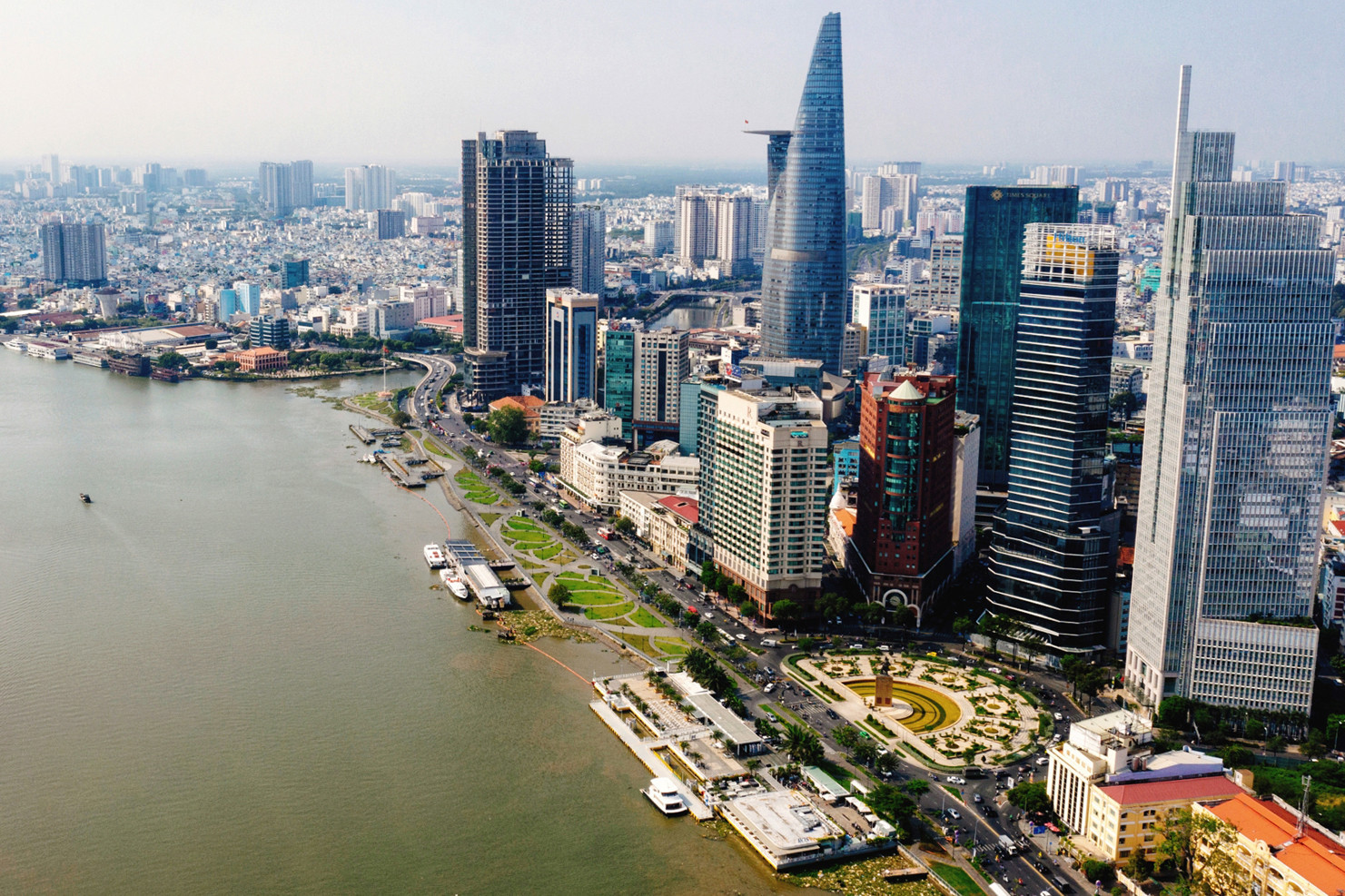
The ‘socialist-oriented market economy’ model was put forward at the ninth Party Congress, but there has been no analysis and review on how Vietnam has pursued the model. What do you think are we leaning towards, ‘market economy’, or ‘socialist orientation’?
Overall, I think that the development inclines to ‘socialist orientation’, while the ‘market’ factor has been somewhat restrained which makes it unable to develop in the right track. Because of the inclination, both sides of the ‘socialist-oriented market economy’ still have not developed at the right level.
We chose ‘market economy’ as a solution to solve the deadlocks in development, and to save the centrally planned economy which was then in serious crisis.
In principle, “development” is the consistent goal of Socialism. We choose ‘Market Economy’ to solve the question of development at the most critical moment, which especially affirms the value of the market economy as the central connotation of the ‘socialist orientation’.
Over the last decades, the Vietnamese private sector, though it is still small and weak, can act as the force which helps Vietnam maintain the socialist-orientation in a substantial way. This is simply because the sector creates the highest number of jobs and highest income for laborers.
Creating jobs and improving laborers’ incomes is one of the major goals the socialism is striving for.
The private sector makes up 50 percent of GDP, 35 percent of total budget collections and generates 50-60 percent of total jobs.
So, you can see, if the market is hindered to develop, the national economy will fall into difficult situation and the risk of leaving behind, thus making it difficult to reach the goal of socialism orientation.
We are running a market economy, and the most important thing of the market economy is the mechanisms of prices, supply and demand, and competition.
In the first years of doi moi (renovation), the state decided to remove the ration card scheme, which, by nature, meant that the state eliminated the old pricing scheme under which prices are fixed by administrative agencies, and replaced the old pricing scheme with the market-based mechanism, under which the prices of goods are determined by the market supply and demand.
Thanks to the move, the national economy revived with unexpectedly strong vitality. The economy flourished, and the country gradually and steadily escaped poverty.
However, in the next development period, many problems arose and the principle is sometimes not respected. Agencies try to maintain the discriminatory treatment, protect the ‘ask-and-grant’ scheme and set complicated administrative procedures. The trend of criminalizing economic and civil relations distorts the competitive environment, causing many bottlenecks.
So, what we need to do now is following the approach which can basically and properly handle the two sides ‘market’ and ‘orientation’. And the key point is the scheme of assessing important resources.
Some analysts commented that Vietnam’s development has ‘hit the ceiling’. Do you agree with the viewpoint?
Vietnam still has large room for development. Resource markets are ‘tied up’, and if they are open, the economy will prosper. Space for innovation also need a new approach, which can help promote the potential capacity of Vietnamese intelligence.
If the national and business administration system can be modernized soon, there would be a strong driving force for development. Once applying the standards of the civilized and progressive world, we will be able to resonate with the world's strength.
We have not completely escaped the traditional way of thinking. The immerse resources for development are wind, sun, ocean and digital world, not just rice fields.
Luckily, Vietnam has been aware of the new ways to develop our resources. The government’s approach to semiconductors, green development, and most recently, the message by the Party Committee Secretary General about the future of Vietnam which is associated with digital transformation, will open up opportunities to make a desirable turnaround.
The Party Committee Secretary General To Lam has recently talked about a new era, opened in the new circumstances, the era for the Vietnamese nation to make a strong rise. Do you agree with the viewpoint?
It is now time for Vietnam to renovate, the time to switch to a new way of development. The thinking and vision need changes.
Lan Anh